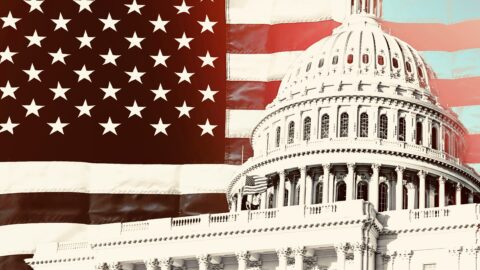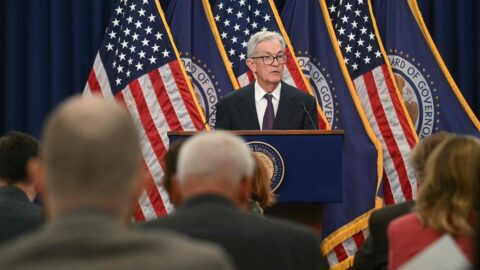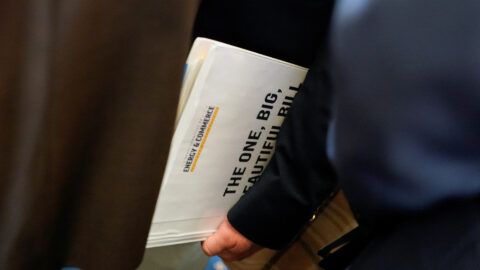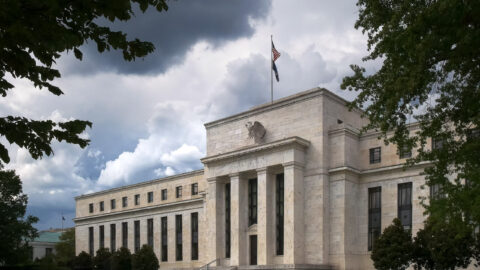All articles on the topic “Markets”
Weekly Winzer: Sector rotation
The stock markets are rising, which is not surprising given the fundamentally positive environment. However, the sector rotation away from growth stocks and toward value stocks is becoming increasingly noticeable. Chief Economist Gerhard Winzer explains the reasons for this in his weekly market commentary.
Market update: “Business as usual”
The new year has so far continued in the same vein: there has been a flood of news on the markets, while the stock markets remain robust, undeterred by the perceived high level of uncertainty. In recent weeks, events have been dominated by the appointment of the future US Federal Reserve chairman and price turbulence in gold and silver.

Economy, geopolitics and AI – that was the World Economic Forum in Davos
From geopolitics to AI, the range of topics at this year’s World Economic Forum in Davos was diverse. The conflict over the USA’s Greenland claims was the main focus of the summit. In today’s blog post, we look at what else was on the agenda at the meeting of leading politicians and economic experts.
Gold and silver prices continue record rally
While all eyes were on the conflict surrounding US President Donald Trump’s Greenland plans this week, the prices of gold and silver continued their record run unabated. The reasons for the rally are manifold and are unlikely to disappear any time soon. It doesn’t always have to be physical gold to participate in this trend. More on this in today’s blog post.
USA demands control over Greenland: What are the possible consequences?
After US President Donald Trump continued to demand that the US gain control over Greenland, he has now announced further tariffs against certain EU countries. How might the Greenland issue develop, and what are the possible consequences?

A new “D” in the D world
With the “Donroe Doctrine”, a new term is shaping the first few weeks of the year. Despite the geopolitical events, the markets are proving robust, which is probably also due to positive economic data. Read more about this in the latest commentary by Chief Economist Gerhard Winzer.
Stock markets end turbulent year close to record highs
Trade conflicts, interest rate decisions, geopolitical tensions and the ongoing AI boom – 2025 had a lot in store for investors. Despite a turbulent year on the stock markets, the most important share indices close close to all-time highs. In today’s blog post, you can find out which sectors particularly shone in 2025 and which topics shaped the year as it drew to a close.
Reality check for the market outlook
Just before Christmas, the markets were once again on fire: numerous interest rate meetings and fresh economic data caused a stir. While expectations for the coming year seem largely set, the new signals from the central banks provide material for a reality check – especially with a view to 2026. Which scenario will win the race and where are the risks lurking?
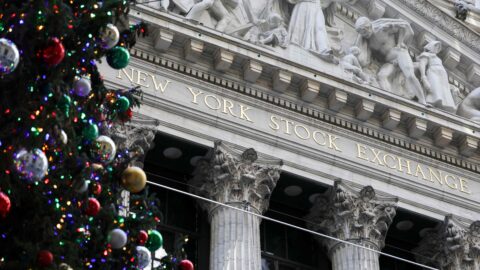
Fed rate cut – A Christmas present
As expected, the US Federal Reserve has lowered its key interest rate once again. This is a positive step for the markets. But how will the Fed continue with its interest rate policy in the new year?
The Tulip Mania
History often serves as a cautionary tale for investors, reminding us that speculative bubbles are usually recognised only after they burst. Just as the Tulip Mania of the 17th century.
The United States – a country in transition?
About a year after Donald Trump was elected US president, it is clear that his second term in office will bring many changes to the US – from numerous regulations to an aggressive tariff policy. The effects of these measures are being felt in many areas. Where are the United States heading?
The markets in a gold rush – overheated rally or brilliant opportunity?
Gold on the rise: Will the rally continue and what opportunities are still available for investors? Read today’s blog post to find out what is behind the development of the gold price and why shares in the gold sector might also be worth a look.
Private equity: Central Europe comes into focus
Erste AM is launching a new private equity fund of funds, Erste Diversified Private Equity II. Thomas Bobek, Head of Private Markets, talks about the investment approach and the private markets segment in an interview.
Emerging markets surprise: positive development despite tariff headwinds
Despite tougher US tariff policy and political uncertainty, the emerging markets are proving surprisingly robust this year. What factors are behind this and what opportunities are there for investors? Find out more in today’s blog post!

Is the automotive industry facing a new chip crisis?
After delivery problems at a major supplier became known last week, fears of a new chip crisis are spreading in the automotive industry. How do industry associations and leading car manufacturers assess the risk?
The search for stability continues, despite rising stock markets
Despite rising stock markets, investors are increasingly seeking stability and are finding it more and more often in new ‘safe havens’. Portfolio Manager Clemens Brugner explains why this is the case and which asset classes are meant by this.
Between the gold rush and AI hype: what can we expect on the home stretch of 2025?
The investment year is gradually approaching the home straight. And 2025 will be remembered in many ways: From the upheavals surrounding Liberation Day to the ongoing AI rally and the sharp rise in the price of gold. Gerald Stadlbauer, Head of Discretionary Portfolio Management, analyzes what the final quarter of 2025 could bring.
Weekly Winzer: Autumn fog
The ongoing government shutdown in the US is also preventing the publication of important economic data. This makes it more difficult to assess the economic environment in the US. Chief Economist Gerhard Winzer explains possible scenarios in his weekly market commentary.
Precious metal prices soaring: Silver at all-time high
Not only has the price of gold risen sharply so far this year, but other precious metals and commodities are also continuing to increase in price. One reason for this is high demand from industry, especially for the production of electronic components.

Weekly Winzer: Interest rate cuts, government shutdown, and the gold rally
While the price of gold exceeded the $4,000 mark for the first time, the government shutdown in the US also dominated the headlines recently. In today’s interview, Gerhard Winzer answers questions about the impact this is having on the stock markets and what else is happening on the markets.
Automotive market: Europe’s industry giants are feeling more optimistic again
Chinese car manufacturers are pushing into Europe – and putting pressure on the domestic industry. Nevertheless, the latter was once again optimistic about the future at this year’s IAA Mobility motor show in Munich. Read more about this in today’s blog post.
Weekly Winzer: Growth rates above expectations
The impact of higher US tariffs on economic growth has so far been less significant as expected. Globally, growth continues to exceed expectations. However, potential downside risks remain.
Federal Reserve cuts US key interest rate
As expected, the US Federal Reserve lowered the key interest rate by 0.25 percentage points yesterday. Chief economist Gerhard Winzer analyzes the interest rate decision and statements by Federal Reserve Chairman Jerome Powell.

Élysée Palace under pressure: who is the real victim of the political stalemate in France?
Yields on French government bonds have risen sharply amid the recent government crisis. How should the current situation in France be assessed?
Weekly Winzer: Powell opens door to interest rate cut
US Federal Reserve Chairman Jerome Powell signalled a possible interest rate cut in September in Jackson Hole. The markets reacted immediately with price gains – but there is more to his words than pure monetary policy. The Fed is caught between inflation risks, a weaker labour market and growing political pressure.
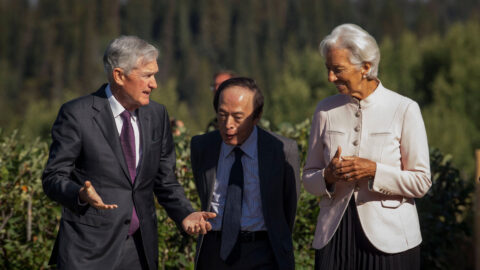
Weekly Winzer: Fed Signals Rate Cut – What Jerome Powell’s Words Mean for Markets
The U.S. Federal Reserve is signaling a possible rate cut in September. What’s behind Powell’s message—and what does it mean for markets and investors?

Semiconductor Industry Optimistic for the Future Despite Tariff Uncertainties Thanks to AI Boom
The semiconductor industry is expected to continue growing strongly in 2025, despite uncertainties surrounding US President Donald Trump’s trade policy, thanks to the AI boom. The World Semiconductor Trade Statistics organisation (WSTS) recently raised its growth forecasts for this year slightly.
Innovation and automation: A visit to Seoul
Fund manager Thomas Oposich reports on his trip to South Korea. There he was able to gain some insights into the innovative strength of the South Korean economy.
Between AI euphoria and recession worries: which scenario will prevail?
The markets are rising thanks to AI hopes, strong corporate profits and non-restrictive monetary policy. But geopolitical risks, weakening labor markets and inflationary pressures are casting shadows. Which scenario will prevail – recession, AI exceptionalism or a period of slowdown?
Advice in turbulent times – Interview with account manager Andreas Stary
In turbulent times on the stock market, investors often seek advice from market experts. What are the most pressing questions for investors and how can they hold their own in the current environment? We spoke to Andreas Stary, customer advisor at Erste Bank Austria, to find out more.
Japan: US trade deal in politically difficult times
With the conclusion of a trade deal, Japan has resolved the tariff conflict with the USA, its most important trading partner, for the time being. The stock market – especially the automotive sector, which is so important for Japan – reacted with relief. However, the domestic political situation in Japan remains tense following the recent upper house election.
Weekly Winzer: Optimistic profit expectations despite risks
Despite the risks posed by the threat of US tariffs, the stock markets have performed positively since April. There are several reasons for this. Nevertheless, the current environment favors a more neutral stance in the portfolio.
Between uncertainty and stability – a half-year full of contrasts
The stock market has been dominated by geopolitical tensions and trade disputes so far this year. Despite this, the markets have proven surprisingly resilient. However, the environment remains challenging, which is why a balanced and broadly diversified portfolio is crucial right now. Read more in the latest market commentary by Gerald Stadlbauer, Head of Discretionary Portfolio Management.
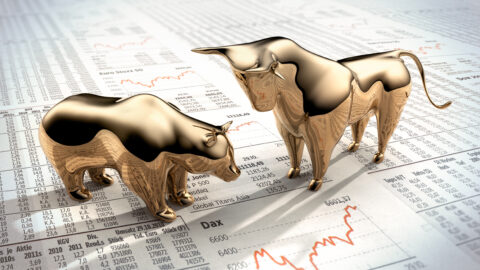
Trump, TACO and tariffs: what can investors expect in the second half of the year?
Geopolitical tensions, a US president unsettling the markets and the surprising outperformance of European markets: the first half of 2025 had a lot in store for investors. What does the future hold? Gerold Permoser, Chief Investment Officer at Erste Asset Management, draws some initial conclusions and provides an outlook for the second half of the year.

Automotive Industry facing challenging climate focuses on EVs and Autonomous Driving
The US import tariffs have made the environment more difficult for the global automotive industry. Local competition in the important Chinese market is also causing concern for many manufacturers. In the future, many automotive companies want to focus more strongly on autonomous driving in addition to e-mobility. There is still some catching up to do in this area, especially in Europe.

US attack on Iranian nuclear facilities
Last weekend, US fighter jets and submarines attacked three important nuclear facilities in Iran. The impact of the latest developments in the Middle East on the financial markets will depend primarily on Iran’s response and the associated development of oil prices.
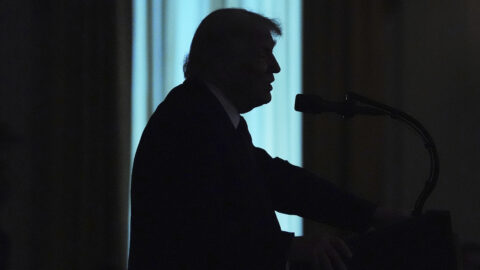
Section 899: How Trump’s tax plans could affect international investors
With the ‘One Big Beautiful Bill Act’, US President Donald Trump wants to push through extensive tax cuts. Section 899, among others, is viewed critically. The passage could primarily affect foreign investors in the US and thus also weaken the US capital market.
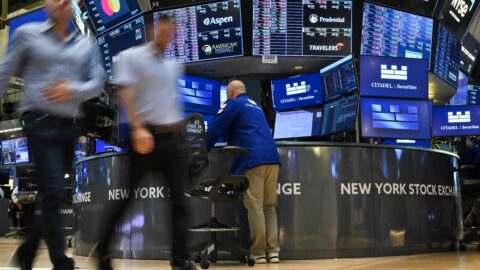
Middle East conflict: Is the markets’ restrained reaction appropriate?
So far, the markets have reacted little to the hostilities between Israel and Iran. Is the market development appropriate or is the risk of further escalation being underestimated? Chief economist Gerhard Winzer explores this question in today’s blog post.

Israel attacks Iran: What does this mean for capital markets and portfolios?
Israel has launched air strikes against Iran. The targets are nuclear sites and military facilities. How are the stock markets reacting and what does this mean for portfolios?

Oil prices under pressure: Why producing countries are changing their strategy
The oil price recently fell to a new four-year low. Not only global uncertainties but also unresolved tariff disputes are weighing on growth prospects and thus also on the oil price. After all, oil is considered an important indicator of global economic development. Nevertheless, some oil-producing countries want to expand their production. What consequences would this have for the oil price, and what are the reasons for this unusual step?
The Triple B Plan
Donald Trump’s “Big Beautiful Tax Bill” package is intended to bring comprehensive tax cuts in the US. The already high budget deficit would increase further. This would also have an impact on US government bond yields, which have been rising for months anyway. There is a threat of a downward spiral with unforeseeable consequences.
What role will the dollar and US government bonds play in the future?
Against the backdrop of the debt debate in the US, yields on US government bonds have risen recently. Rising debt and political uncertainty are also weighing on confidence in the US dollar. Could the greenback even lose its role as the global reserve currency?
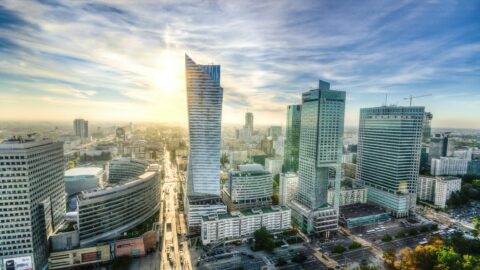
Eastern Europe’s economy showing good growth – trade conflict remains a risk factor
Despite geopolitical tensions and trade risks, Eastern Europe remains on track for growth. Read today’s blog post to find out why Poland is performing particularly well, what role the investment program in Germany and the war in Ukraine are playing, and which markets could be promising.
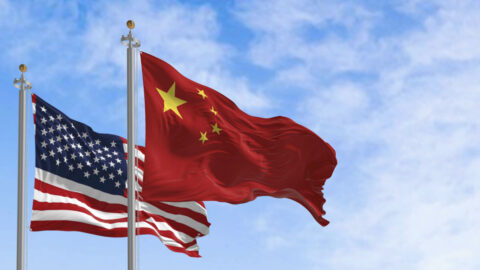
Trade conflict between the USA and China eases
The US and China have agreed to suspend high tariffs for 90 days. While the markets are reacting with relief, some uncertainties remain.

Trump 2.0 – The first 100 days lie behind us
Following the tariffs shock and the accompanying market turmoil, the deferral of said tariffs has led to a surprisingly rapid upturn on the equity markets. That being said, uncertainty remains high, even though the US reporting season has been positive so far. Read more in the market commentary by Gerald Stadlbauer, Head of Discretionary Portfolio Management.
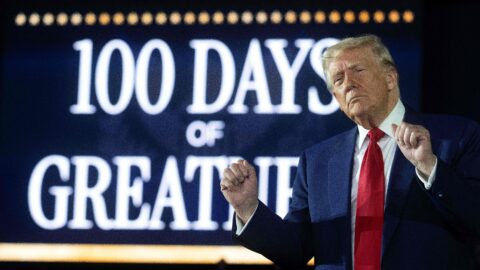
The first 100 days
The first 100 days of Donald Trump’s second presidency are behind us. What has happened since then? Will the structural changes continue at this pace?

International Monetary Fund/World Bank Group Spring Meetings 2025
At this year’s spring meeting of the International Monetary Fund and the World Bank, US tariffs were the dominant topic.
Central banks at odds: How are Fed and ECB reacting to the trade conflict?
Trump’s customs policy and the trade conflict also pose new challenges for central banks. However, while the ECB has room to cut interest rates in order to support the economy, the Fed must exercise caution in the USA. Higher tariffs also threaten to push up inflation again.
However, US President Donald Trump does not like the Fed’s course at all. His attacks on Fed Chairman Jerome Powell are fuelling concerns about the central bank’s independence. Even though Trump has recently backed down slightly, his comments are once again unsettling the markets.
Stock markets react volatile to tariff pause: what happens next?
The US government’s extensive tariff plans have been causing volatility on the stock markets since last week. Yesterday’s announcement of a 90-day pause for the new tariffs was met with relief by the markets – even though a further escalation between the US and China is on the horizon. We take a look at the current situation on the financial markets and analyse the possible consequences of an escalation in the trade conflict.
US tariffs trigger a price slide – what to do now
The latest US tariffs have caused considerable turbulence on the financial markets worldwide. What is the background to the tariffs and how can investors react in the current environment?








